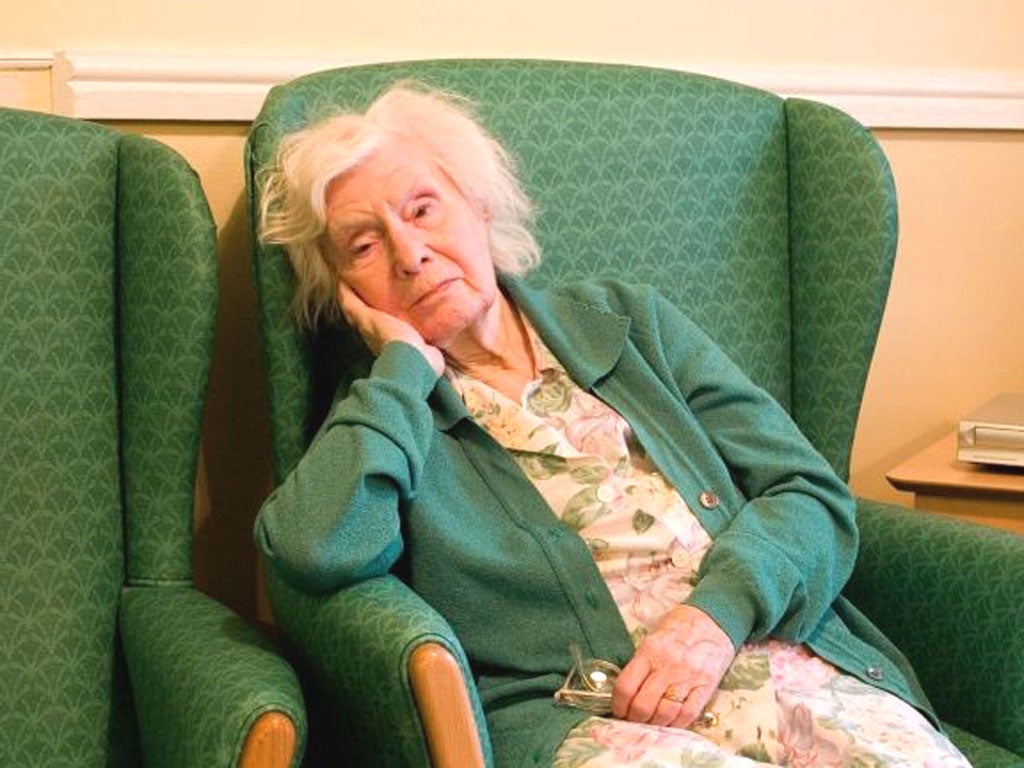
The Queen is going to be terribly busy during the final years of her reign, writing birthday telegrams to Britain's growing number of centenarians. Her successors, it would appear, will be even busier.
There are 6,500 people aged 99 in the UK, which means that Her Majesty will post birthday felicitations to around 18 people every day over the coming year. But by 2047 (that's only 35 years away), the new monarch may have to raise the age bar – otherwise he will be penning 260 birthday telegrams every day. By then, reaching the ripe old age of 100 will no longer be a big deal, and perhaps not even worthy of regal birthday wishes.
A third of babies born this year are expected to survive to celebrate their 100th birthday, according to new projections by the Office of National Statistics, compared to 12 per cent of people aged 65 in 2012. In 1961, when records began, there were just 626 centenarians in the UK; there will be 455,000 by 2060.
The numbers are staggering and the implications for society profound. But before panic sets in about an "age time bomb", let us not forget that this is a good news story, which began unfolding in the 20th century as killer childhood infectious diseases were largely irradiated in the developed world. It is a success of humanity that developing nations understandably strive to replicate.
Avan Aihie Sayer, a professor of geriatric medicine and clinical scientist at the Medical Research Council unit at the University of Southampton, said: "What a fantastic success story. We are living longer and living healthier, in general we are ageing better, which we all want on an individual level. Yet there is such bad PR about the whole thing. Ageism is so pervasive, yet is it an odd form of discrimination because unlike racism and sexism, we are all ageing. "
The fact that most babies now survive childhood is the single most significant reason for massive increases in life expectancy during the first two-thirds of the last century. In addition, improvements in maternal health over the same period, goes one theory, means we are no longer as biologically old as we used to be: we are not only dying later, but we are also developing disabling illnesses later, according to Professor Finbarr Martin, president of the British Geriatrics Society.
As medicine advances, potentially fatal conditions common in middle and older age, such as heart and respiratory diseases, are better understood and effectively managed. Professor Martin said: "The things that kill people when they are old are affected by public health measures, in particular immunisation, central heating and great improvements in social care, which means people are more likely to recover if they become ill or disabled."
One condition that becomes substantially more likely the older we get is dementia, which affects one in 14 people over 65, one in six over 80 and one in three over 90. It is the condition that most people dread the most and research into it received a much-needed cash injection yesterday as David Cameron announced a 140 per cent increase of public funds by 2015.
Hannah Clack, from the Alzheimer's Society said: "As we all live longer and get better at curing other conditions, the number of people with dementia is going to rise exponentially. There are already 800,000 in the UK and this will double and costs triple within a generation...it is biggest health and social care challenge of our aging population."
But it is not only dementia. Our buckling health service was set-up to deal with single-organ acute conditions mostly affecting middle-aged people or younger pensioners. Yet the NHS, like the social care system, is now mainly used by frail very old people with multiple conditions, who have a range of complex problems that affect their ability to function independently.
Professor Sayer said: "This is where the big buck stops for Government: how to provide health and social care for frail people with complex needs when you have a system that is currently not fit for purpose."
Jonathan Clifton, from the Institute for Public Policy Research, a think tank, said: "We will need to find ways to release the equity pensioners have built up in their homes to help cover the cost of care, as well as encouraging the younger generations to insure themselves against future costs of care."
Michelle Mitchell, charity director of Age UK, said: "Increasing life expectancy is one of the great triumphs of medical and social progress – we now need to work to ensure that those extra years of life are as fulfilling as possible for older people."
Subscribe to Independent Premium to bookmark this article
Want to bookmark your favourite articles and stories to read or reference later? Start your Independent Premium subscription today.

Join our commenting forum
Join thought-provoking conversations, follow other Independent readers and see their replies